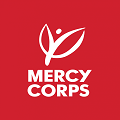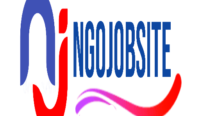
Project/Consultancy Title: Behavioral Barrier Analysis (BBA) on Maternal, Infant & Young Child Nutrition Practices in Northeast Nigeria
Project Location(s): Gwoza, Damboa, Dikwa, Konduga and Monguno LGAs in Northeast, Nigeria
Duration: 30 Days
Background:
Mercy Corps (MC) and the International Rescue Committee (IRC) are implementing the Broadening Emergency and Graduation Efforts in Borno (BEGE), a 24-month humanitarian program in five Local Government Areas (LGAs) in Northeast Nigeria (Gwoza, Damboa, Dikwa, Konduga and Monguno) This program is in line with the Borno State Government Strategic Transformational Initiatives-STIs (2020-2030) and 25-Year Development Framework. The BEGE-Borno program is hinged on a vision of building towards a more inclusive, resilient future for the communities we serve through a framework of helping people and communities to cope, adapt and thrive. The BEGE Borno intervention’s goal is to deliver lifesaving, life-sustaining interventions and enhance adaptation of 238,369 displaced, returnee and host households to shocks and systemic constraints within Borno State. BEGE Borno is a consortium led by Mercy Corps, with the International Rescue Committee (IRC) as a partner, alongside other local partners, delivering integrated assistance to people in acute need through Health, Nutrition, WASH, Food Assistance, Unconditional Cash, Protection, Shelter, and Agriculture sectors.
The BEGE Borno nutrition response is designed to use evidence-based approaches to support nutrition-sensitive and specific activities that contribute to prevention, detection, and management of malnutrition. The program prioritizes interventions in three BHA nutrition sub sectors i.e., Maternal, Infant, Young Child Nutrition in Emergency (MIYCN-E), Supplemental Nutrition Assistance (SNA) and Management of Acute Malnutrition. The nutrition response is aligned to the 2022/2023 Humanitarian Response Plan (HRP) recommendations and aims to address context-specific nutrition gaps identified in various nutrition surveys/assessments i.e. Integrated Phase Classification (IPC) for Acute Malnutrition, Nutrition and Food Security Surveillance (NFSS) and learnings from previous Mercy Corps and IRC Programs to ensure continuity and scaling up of innovative nutrition approaches among conflict-affected populations. Special focus is given on emergency assistance packages to address malnutrition among children under five (CU5) and Pregnant and Lactating Women (PLW) as these groups are at high risk of becoming malnourished due to several existing inter-related factors, e.g., severe food insecurity, limited access to health and nutrition services, sub-optimal Maternal, Infant and Young Child Feeding practices, high morbidity, extremely poor diet lacking in nutrients for growth and development, and poor sanitation and hygiene.
MIYCN Situation & Programming in BEGE targeted Areas.
Promotion and supporting IYCF practices and maternal nutrition including micronutrient supplementation during pregnancy and lactation is key in sustaining critical growth and development in the first 1,000 days of the child (Conception to 24 months of age).NFSS Round 13 Nutrition SMART Survey conducted in 2023 showed improving but still poor MIYCN indicators i.e., Exclusive Breast Feeding (EBF) rate, Minimum Dietary Diversity (MDD) for Women of reproductive age -W, MDD for -Children, Minimum Meal Frequency among others. For example, in eastern Borno domain that covers Dikwa and Gwoza LGAs, EBF was at 51% though slightly better when compared to state level situation (44.6%). However, in Central Borno, that covers Damboa, Konduga and Monguno, EBF rates are worse at 31%. Continued breastfeeding among Children 12-23 months) is at 59.6% in Borno, but only at 68.7% in eastern Borno and in central Borno at 63.3%. There are also gaps in the ability to consume nutritious meals among Children 6-23 months and women of reproductive age. In Borno, Minimum Dietary diversity (MDD), Minimum Meal Frequency (MMF) and Minimum acceptable Diets (MAD) among young children are as low as 23%, 54% and 12.6% respectively. However, in central and eastern Borno the percentage of children 6-23 months that consume 5 or more food groups is at 13% and 10.2% respectively.
The BEGE Program plans to scale up and strengthen contextualized strategies, approaches, and frameworks to ensure existing barriers to good nutrition are eliminated in the target communities. This will be informed by the planned Behavior Barrier Analysis (BBA), which should at triangulating the limitations and best practices to optimal MIYCN practices. MIYCN activities aim to reinforce practices such as early initiation, exclusive breast feeding, complementary feeding, breastfeeding up to 23 months of age, acceptable minimum meal frequency and dietary diversity for children 6-23 months and women of reproductive age.
The BEGE program is implementing various contextualized MIYCN SBCC activities i.e. a). MIYCN dissemination and messaging through the Community Hygiene Promoters and Influencers’ Services (CHIPS)/Community Nutrition Monitors (CNMs), b). Capacity building of Community structures, Nutrition Service providers/ Health workers and program staff on Integrated MIYCN-E and CMAM, c). Providing skilled counseling and support at IYCF Supportive spaces/ Corners, d). Strengthening group awareness and counseling using the care group model, e). Cooking demonstrations, f). Mass sensitization campaigns, dialogues session and drama show. h). Strengthening integration of micronutrient supplementation and deworming activities in supported Community Based Management of Acute Malnutrition (CMAM) and MIYCN-E activities to improve nutritional outcomes.
The BEGE Program plans to prioritize measurable shifts in a series of MIYCN behaviors and the full extent of sub-behaviors as detailed below:
- Increasing the number of months infants that are exclusively breastfed, where appropriate.
- Improving complementary feeding practices centered on age-appropriate, safe, diverse, nutrient-rich foods.
- Increasing daily consumption of at least five out of ten defined food groups by Pregnant or Lactating women and Girls.
- Increasing daily consumption of at least five out of eight defined food groups by children 6-23 months.
- Increasing consumption of acceptable diets by children 6-23 months (i.e. Consumption of five or more food groups, Age-appropriate daily meal frequency, and consumption of at least two milk feeds (where applicable).
- Enhancing hygienic food handling, preparation, and storage.
- Expanding the equitable allocation of intra-HH responsibilities and decision-making (including those related to agriculture and income generation), aligned with positive shifts in gender norms and with a specific focus on the role of fathers.
The barrier analysis will also include the complementary feeding practices and the other sub-behaviors.
Purpose / Project Description:
The Behavioral Barrier Analysis (BBA) will identify determinants and individual, social, and institutional barriers that influence uptake of MIYCN practices. This study will seek to determine the main factors that drive or prevent people in Gwoza, Damboa, Dikwa, Konduga and Monguno from adopting appropriate Maternal Infant and Young Child Feeding practices. It will categorize drivers. It will also include key questions that will also focus on specifying the barriers that currently prevent individuals from engaging in the desired behavior and that currently encouraging individuals to engage in alternatives to the desired behavior. Understanding how multiple drivers intersect will be prioritized as well. Specific behaviors can include making a decision or taking action.
| Suggested Behavioral Drivers | |
| Perceived Self-Efficacy | Perceived Cues for Action |
| Perceived Positive Consequences | Perceived Susceptibility/Risk |
| Perceived Negative Consequences | Perceived Severity |
| Perceived Social Norms | Perceived Divine Will |
| Perceived Access/Physical Opportunity | Culture |
| Policy and Institutions | |
Consultant Objectives:
The consultant will develop the inception report for this study (barrier analysis protocol) including methods, sample size, team composition, training materials, data collection modalities, etc, and contextualize tools using the barrier analysis technical reference document.
The study can adopt the “doers/non-doers” approach, popularized under the Designing for Behavior Change Framework developed by TOPS/USAID. However, the consultant can suggest an approach that is suitable for the Behavior Barrier Analysis based on past experiences on similar works. The consultant will also conduct secondary literature review and pair this BBA with other nutrition assessments and surveys to leverage on further insights. The study should combine mixed methods (Qual and Quant) to unpack what influences behaviors and this will inform the program’s Year 2 MIYCN SBC Strategy.
The proposed BBA methodology should employ a specialized research approach for SBC meant to identify the most powerful barriers and enablers to a particular behavior or set of behaviors among priority audience groups in a specific set of time. Consultant will ensure activity design is based on an accurate understanding of the factors (individually and in combination) driving behaviors of interest among key sub-populations.
Consultant Activities:
The Consultant will prepare and implement:
- Develop an inception report that details the Barrier analysis methodology including possible study questions, activities Timeframe / Schedule, a work plan outlining calculation of sample, quality assurance, analysis, and reporting plans, etc.
- Review of project documents and evaluation reports available along with secondary literature pertinent to the context and the study.
- Consultation with the project team and intervention site visits for sense making before tool development.
- Draft data collection tools (e.g., surveys, questionnaires, etc.) with identified primary respondents per tool type (Quant and Qual)
- Translate the tools into relevant local language and back-translate them to English.
- Assume overall responsibility for design and implementation of the barrier analysis, including daily supervision of survey teams and daily data collection quality assurance. Mercy Corps will support in the recruitment of enumerators and payment of the enumerators.
- Develop a scope of Work for enumerators.
- Conduct training for enumerators, including probing, informed consent, and gender and conflict sensitivity.
- Conduct a pilot testing for enumerators.
- Develop a data analysis plan.
- Draft report capturing key findings.
- Lead the validation workshop, conducted with relevant program stakeholders to inform the final draft and any additional research needs.
- Draft a final report, including MIYCN BBA findings and recommendations for a contextualized SBC strategy.
- Draft and implement results/report dissemination plan/presentations to the sector and TWGs.
Consultant Deliverables:
The Consultant will deliver:
- Final report, including MIYCN BBA findings and recommendations for a contextualized SBC strategy.
- Power point slides for dissemination not more than 15 slides.
- Inception report
- Analysis plan
- Datasets for both Quantitative and notes from the Qualitative data collection.
- Develop at least 1 case study on what has worked/seems to be working in our programming.
The Consultant will report to:
- The consultant will report to the Country MEL Lead while copying the Senior Nutrition Advisor – Global
and the PaQ director who will monitor the process.
The Consultant will work closely with:
- Nutrition and Food Security Advisor
- MCN Nutrition team
- Field managers and other relevant program managers.
- IRC Nutrition teams
- Borno MEL Team
Timeframe/Schedule:
- Estimated Commencement Date: 15th May 2024
- Estimated End Date: 30th June 2024
Required Experience & Skills:
To perform this consultancy successfully, an individual must be able to perform each task with or without reasonable accommodation.
- A research consultant with experience in social research and preference will be given to person with prior experience in nutrition.
- Background of 5-10 years’ experience in Nutrition programming and assessments/studies including barrier analysis.
- Knowledge in designing and implementing CMAM and IYCF programs.
- Excellent analytical and statistical skills.
- Strong communication skills, able to effectively present information clearly and respond appropriately to questions from IMC staff and other relevant stakeholders.
- Strong supervisory and organizational skills.
- Ability to work on own initiative and to meet deadlines.
- Ability to travel to Borno state – in Nigeria to undertake/lead the study.
- Ability and willingness to travel to field sites and nutrition facilities.
- Advanced proficiency in the use of MS Office, EPI INFO, SPSS.
- Fluent in written and spoken English.
Evaluation Criteria:
| Criteria | Weight (%) | Possible Points (1 to 10) | Weighted Score |
| (A) | (B) | (A*B) | |
| Provide consultant’s profile detailing Knowledge in designing and implementing CMAM and IYCF programs. | 20% | 10 | 1 |
| Evidence of good track record and experience in Nutrition programming including providing evidence of formerly written/undertaken assessments/studies including barrier analysis. | 40% | 10 | 4 |
| Reference list from other organization or company worked with (contact, authorized representative of the Company and email) on a company letter headed paper. | 20% | 10 | 2 |
| Agreement to accept payment in tranches after deliverable of agreed milestones. 30% after the inception report is submitted and approved.30% after the data analysis, analysis plan and analysis presentation is approved.40% after submission of the final approved report. | 10% | 10 | 2 |
| Financial capacity – Audited financial report (2022 – till date) /Reference letter from bank. | 10% | 10 | 1 |
| TOTAL POSSIBLE SCORE: | 100% | 100% | 10 |
Application Process:
Interested candidates are required to submit the following documents to apply:
A. Technical Proposal (Not more than 10 Pages)
- Clear work plan and timelines describing the proposed methodology to undertake this assignment, including data collection, sampling strategy, data analysis, integration of gender considerations and ethical standards, quality assurance.
- Proposed timeframe detailing activities and a work plan.
- Proof of experience in handling similar projects by providing a list of past and present clients for which the consultant has already conducted an evaluation study.
- Submit at least three Certificates of completion/recommendation letters from previous most recent clients preferably in areas of evaluation (include contact information).
- Indicate qualifications of the lead team and support team, with CVs and functional responsibilities of the key people to be engaged.
- Indicate years of experience in the field of evaluation. (Over 8 years of experience will be an added advantage)
- Company Profile.
- Any other information to support your proposal.
B. Financial Proposal (Not more than 2 Pages)
- Budget should be clearly broken down and justified including estimated days of working, expenses related to data collection, analysis, report writing, and presentation.
- Be comprehensive and inclusive of all applicable taxes.
- Clear cost structure for the evaluation study.
- Indicate terms and conditions of payment.
Deadline for Submission: 7th May 2024
Submissions: Interested consultants should submit all the Technical and Financial Proposal to the following:mdg- [email protected] using the subject ‘Consultant for Behavioral Barrier Analysis’
***Please include in your proposal costs for Consultancy and cite related previous studies/assessments conducted. ***
Diversity, Equity & Inclusion
Achieving our mission begins with how we build our team and work together. Through our commitment to enriching our organization with people of different origins, beliefs, backgrounds, and ways of thinking, we are better able to leverage the collective power of our teams and solve the world’s most complex challenges. We strive for a culture of trust and respect, where everyone contributes their perspectives and authentic selves, reaches their potential as individuals and teams, and collaborates to do the best work of their lives.
We recognize that diversity and inclusion is a journey, and we are committed to learning, listening and evolving to become more diverse, equitable and inclusive than we are today.
Equal Employment Opportunity
We are committed to providing an environment of respect and psychological safety where equal employment opportunities are available to all. We do not engage in or tolerate discrimination on the basis of race, color, gender identity, gender expression, religion, age, sexual orientation, national or ethnic origin, disability (including HIV/AIDS status), marital status, military veteran status or any other protected group in the locations where we work.
Safeguarding & Ethics
Mercy Corps team members are expected to support all efforts toward accountability, specifically to our stakeholders and to international standards guiding international relief and development work, while actively engaging communities as equal partners in the design, monitoring and evaluation of our field projects. Team members are expected to conduct themselves in a professional manner and respect local laws, customs and MC’s policies, procedures, and values at all times and in all in-country venues.



